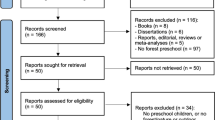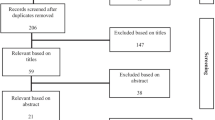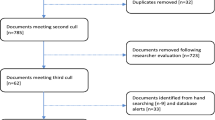Abstract
Recently, the place of adventure activities in outdoor education has become contentious, particularly in Australia and the United Kingdom. It can be challenging for outdoor leaders to incorporate adventure activities with attempts to foster environmental awareness, understanding and action. Recently, some authors have suggested practitioners eliminate the tension by removing adventure activities from outdoor environmental education programs altogether. This paper presents the findings of an ongoing action research project exploring ways to resolve the tension between using adventure activities and helping participants to learn about particular regions, communities, and their histories. The research described in this paper utilised thematic analysis of data collected through a professional journal, focus groups, and student writing. The emerging themes included: the need to capitalise on teachable moments; the importance of managing the technical nature of adventure activities; the importance of deliberate planning and facilitation; and the need for careful consideration of the impact of program length or duration.
Similar content being viewed by others
References
Bassey, M. (1998). Action research for improving educational practice. In R. Halsall (Ed.), Teaching research and school improvement: Opening doors from the inside (pp. 93–108). Buckingham: Open University Press.
Brookes, A. (1993). Deep and shallow outdoor education. Can we tell the difference? The Outdoor Educator, June, 8–17.
Brookes, A. (2002). Lost in the Australian bush: Outdoor education as curriculum. Journal of Curriculum Studies, 34(4), 405–425.
Brookes, A. (2003). A critique of Neo-Hahnian outdoor education theory. Part two: “The fundamental attribution error” in contemporary outdoor education discourse. Journal for Adventure Education and Outdoor Learning, 3(2), 119–132.
Brookes, A, (2004). Can outdoor education be dispensed with? An enquiry into some text book approaches to outdoor education. Paper presented at the Connections and disconnections: Examining the reality and rhetoric. International perspectives on outdoor education theory and practice, Bendigo, Victoria, Australia.
Cooper, G. (1991). The role of outdoor and field study centres in educating for the environment. Journal for Adventure Education and Outdoor Leadership, 8(2), 10–12.
Cooper, G. (1994). The role of outdoor education in education for the 21st century. Journal for Adventure Education and Outdoor Leadership, 22(2), 9–12.
Cooper, G. (1997). How outdoor education contributes to sustainability. Horizons, 1, 23–27.
Cooper, G. (1998). Outdoors with young people: A leader’s guide to outdoor activities, the environment and sustainability. Lyme Regis, Dorset: Russell House.
Habermas, J. (1984). The theory of communicative action, Vol. 1: Reason and rationalisation of society (T. McCarthy, Trans.), Boston: Beacon Press.
Habermas, J. (1991). Communication and the evolution of society (T. McCarthy, Trans.). Cambridge, England: Polity.
Hanna, G. (1995). Wilderness-related environmental outcomes of adventure and ecology education programming. The Journal of Environmental Education, 27(1), 21–32.
Lugg, A. (2004). Outdoor adventure in Australian outdoor education: Is it a case of roast for Christmas dinner? Australian Journal of Outdoor Education, 8(1), 4–11.
Lynch, P., & Moore, K. (2004). Adventures in Paradox. Paper presented at the Connections and disconnections: Examining tlte reality and rhetoric. Intemational perspectives on outdoor education theory and practice, Bendigo, Victoria, Australia.
Martin, P. (1998). Educational ideology and outdoor leadership education: Why both ORCA and the AOEC exist. Australian Journal of Outdoor Education, 3(1), 14–20.
Martin, P. (1999). Critical outdoor education and nature as friend. In J. C. Miles & S. Priest (Eds.), Adventure programming (pp. 463–471). State College, PA: Venture.
Martin, P. (2002). A Naturalistic inquiry into the role of outdoor education in slwping human/nature relationships. Unpublished doctoral dissertation, LaTrobe University, Bendigo.
Martin, P. (2004). Outdoor adventure in promoting relationships with nature. Australian Journal of Outdoor Education, 8(1), 20–28.
Martin, P., & Thomas, G. (2000). Interpersonal relationships as a metaphor for human-nature relationships. Australian Journal of Outdoor Education, 5(1), 13–24.
Nicol, R. (2002a). Outdoor education: Research topic or universal value? Part one. Journal of Adventure Education and Outdoor learning, 2(1), 29–41.
Nicol, R. (2002b). Outdoor education: Research topic or universal value? Part two. Journal of Adventure Education and Outdoor learning, 2(2), 85–99.
Nicol, R. (2003). Outdoor education: Research topic or universal value? Part three. Journal of Adventure Education and Outdoor learning, 3(1), 11–28.
Palmberg, I. E., & Kuru, J. (2000). Outdoor activities as a basis for environmental responsibility. The Journal of Environmental Education, 32(4), 32–36.
Palmer, J. A. (1993). Development of concern for the environment and formative experiences of educators. Journal of Environmental Education, 24(3), 26–30.
Payne, P. (2002). On the construction, deconstruction and reconstruction or experience in ‘critical’ outdoor education. Australian Journal of Outdoor Education, 6(2), 4–21.
Preston, L. (2004). Making connections with nature: Bridging the theory — practice gap in outdoor and environmental education. Australian Journal of Outdoor Education, 8(1), 12–19.
Raffan, J. (1993). The experience of place: Exploring land as teacher. The Journal of Experiential Education, 16(1), 39–45.
Rasmussen, D. M. (1996). Critical theory and philosophy. In D. M. Rasmussen (Ed.), The handbook of critical theory (pp. 11–38). Oxford, England: Blackwell.
Rossman, G. B., & Rallis, S. E (2003). Learning in the field: An introduction to qualitative research. London: Sage.
Rubin, H. J., & Rubin, I. S. (1995). Qualitative interviewing: The art of hearing data. Thousand Oaks, CA: Sage.
Stewart, A. (2004). Decolonizing encounters with the Murray River: Building place responsive outdoor education. Paper presented at the Connections and disconnections: Examining the reality and rhetoric. International perspectives on outdoor education theory and practice, Bendigo, Victoria, Australia.
Thomas, G. J., & Thomas, J. (2000). Moving water paddling as critical outdoor education. Australian Journal of Outdoor Education, 5(1), 47–54.
Zink, R. (2003). Abseiling at five, rafting at ten, what do we do with them when they are 15? New Zealand Journal of Outdoor Education, 1(2), 56–62.
Author information
Authors and Affiliations
Corresponding author
Additional information
Glyn has worked in the outdoor education field for the last 15 years. He is currently a lecturer at La Trobe University in Bendigo, in the School of Outdoor Education and the Environment. His ongoing doctoral research is in the area of facilitator education.
Rights and permissions
About this article
Cite this article
Thomas, G. Traditional adventure activities in outdoor environmental education. Journal of Outdoor and Environmental Education 9, 31–39 (2005). https://doi.org/10.1007/BF03400810
Published:
Issue Date:
DOI: https://doi.org/10.1007/BF03400810




